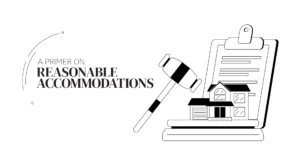Under California and federal law, landlords are prohibited from discriminating on the basis of disability and are required to make a reasonable accommodation to rules, policies, and regulations (including no-pet lease clauses) in order to permit a tenant with a disability to enjoy full and equal use and access of the premises. Once an accommodation request is made, the landlord bears the burden of engaging in a “good faith interactive process” regarding the request. Denial of a reasonable accommodation request must be justified by the landlord and must be reasonable. Whether the landlord’s decision was reasonable is fact-specific. With respect to emotional support animals, increasingly, courts reject landlord excuses made to deny requests to keep a household support animal for a disabled tenant.
Unfortunately, landlords still refuse to understand that the law is against them and may try to push back. If they unreasonably deny a request, a tenant may bring a claim for discrimination/violation of the requirement to engage in a good faith interactive process. If the denial results in displacement, the tenant may sue for displacement/moving costs, rent differentials for loss of their leasehold, and emotional distress damages.
To prove discrimination on the basis of denying an accommodation request, a tenant must establish that he or she (1) suffers from a disability (which is broadly defined under state law), (2) the discriminating party knew of, or should have known of, the disability, (3) an accommodation is necessary to afford an equal opportunity to use and enjoy the dwelling, and (4) the discriminating party unreasonably refused to make this accommodation. Auburn Woods v. FEHA, 121 Cal. App. 4th 1578 (2004).
Before making a reasonable accommodation request, California tenants should speak with an attorney to discuss their options, review their lease with counsel, and understand what documentation to gather prior to making an accommodation request.






